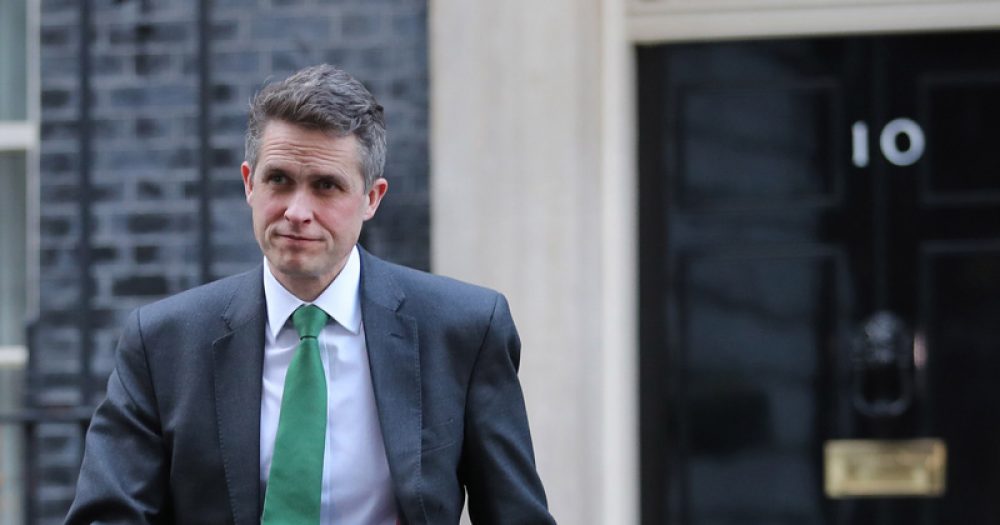Ministers are seizing control of the restrictive measures schools can implement to fight the spread of Covid under a rehashed contingency framework released today.
The Department for Education has released a contingency framework for education settings which sets out how the government will manage the exceptional circumstances in which further restrictions were required on education.
The guidance replaces the now axed four-tier system for schools in areas with Covid restrictions, which sees the possibility of schools moving to rota ditched.
It states primaries where the contingency framework is implemented should continue to open as normal, but secondaries should close to all but vulnerable children and those in exam years.
Face mask rules continue to apply: pupils and adults in secondary schools in tier 2 or 3 areas must wear face coverings when moving around outside of classrooms, such as in corridors and communal areas where social distancing cannot easily be maintained.
However schools have been warned they “should not move to implement restrictive measures of the kind set out in the contingency framework without the explicit agreement of DfE”.
Here’s what you need to know:
Primary schools
The DfE states where the contingency framework is implemented, “primary schools should continue allowing all children to attend.”
However in the “very unlikely event that evidence supports limiting attendance in primary schools, DfE may advise that only vulnerable children and children of critical workers should be allowed to attend.”
Secondary schools
Contingency controls at secondaries would see them close to all but vulnerable children, children of critical workers, pupils in years 11 and 13 and other pupils due to take external exams this academic year.
But “high-quality” remote education must be provided for pupils not in school.
Middle schools are being advised to take a “combined approach”, allowing pupils in primary year groups to attend but only vulnerable children and children of critical workers in older year groups.
Boarding schools are expected to follow the same guidance but children “who are not to be taught in classrooms but who cannot return home should receive high-quality remote education in their boarding houses”.
Special schools
The guidance states that special schools “should continue to allow pupils to attend full-time” as the DfE is aware pupils with SEND can be “disproportionately impacted by being out of education”.
While attendance of primary school children is “mandatory in mainstream schools” – this is not the case at special schools.
The DfE states: “In the very unlikely event that evidence supports limiting attendance in primary schools, attendance is encouraged but will not be mandatory for special school pupils of primary school age and parents will not be penalised if their child does not attend.”
At secondary level attendance is one again encourage but will “not be mandatory and parents will not be penalised if their child does not attend”.
Alternative provision
The DfE states that “where the contingency framework is implemented, alternative provision (including pupil referral units, AP academies, AP free schools) should continue to allow all children or pupils to attend full-time.”
Exams
Exam centres and schools should remain open for exams and assessment under the new contingency guidance, but may introduce additional mitigations including; wearing face coverings in communal areas, two-metre spacing between all desks and additional protections for candidates who are classed as clinically extremely vulnerable, such as taking exams and tests in a separate room to other candidates.
The guidance states senior school leaders will determine if it is “appropriate, practical and reasonable to provide exams and tests in a separate room or, in exceptional circumstances, at the candidate’s home.”
When, where and who applies the framework?
The guidance states that the DfE will make the decision to apply the contingency framework outlined in a given area.
It will work with the Chief Medical Officer, the Joint Biosecurity Centre (JBC), Public Health England (PHE) and relevant local authorities to ensure “the decision is informed by the available evidence, via the existing mechanisms”.
DfE may also advise the implementation of the framework across “any geographical area”, including “a cluster of settings, local area, local authority or region”.
Free school meals
The DfE states schools should continue to provide free school meals or food parcels for eligible pupils who are not attending school.
This applies when pupils are; self-isolating, have symptoms or a positive test result themselves, have been in contact with someone who has Covid or are not attending as a result of implementation of local restrictions advised by the government.
It adds: “Schools should work with suppliers to prepare meals or food parcels to be collected by, or delivered to, these eligible children during their time at home. Any parcels should be distributed in line with guidance on social distancing and local restriction tiers and should meet the school food standards.”








Your thoughts